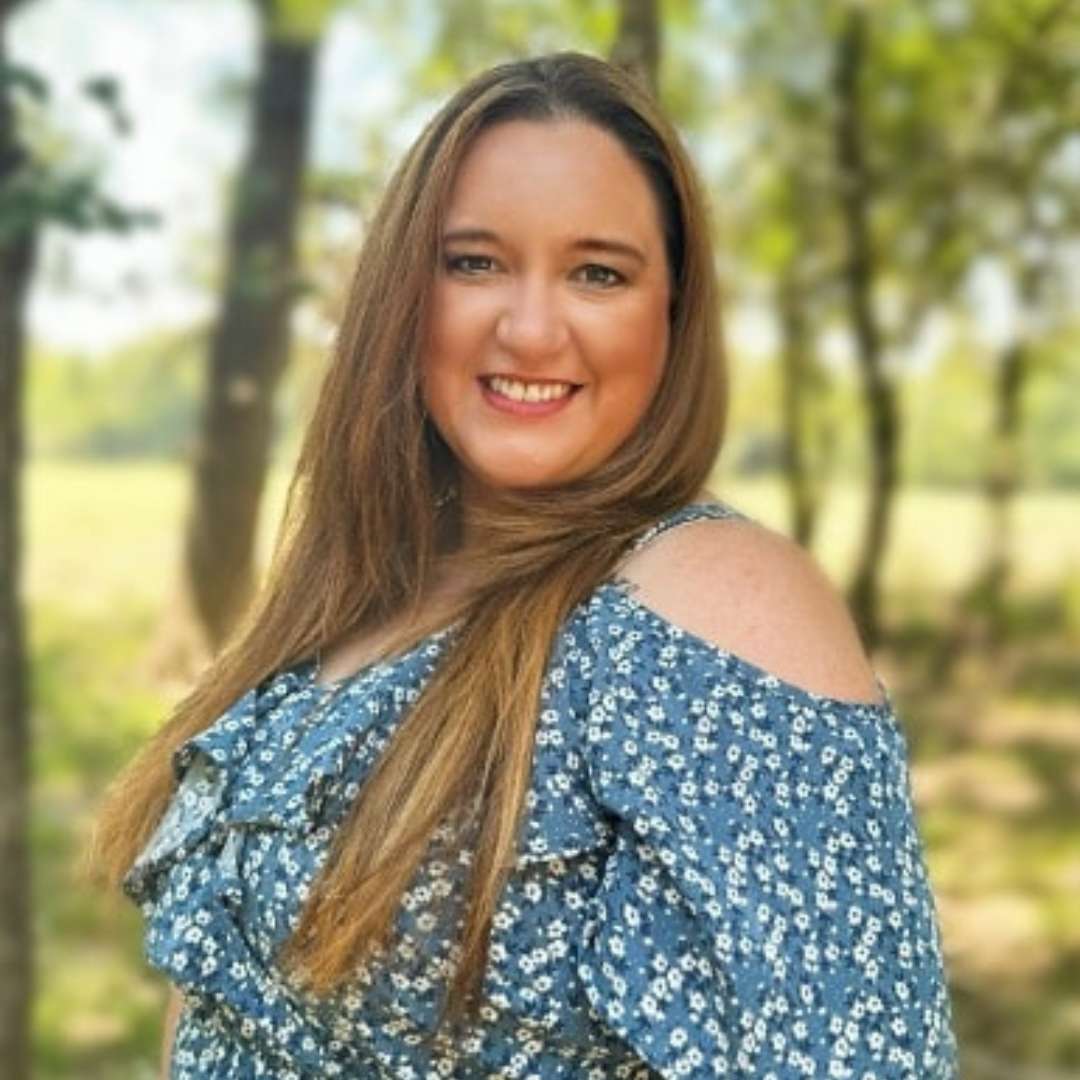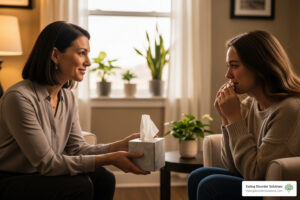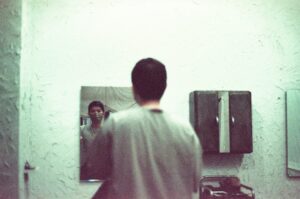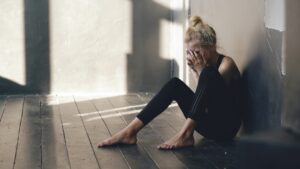What if you could time travel, just for a second? Not to some distant sci-fi future, but to a version of your life just one year from today. A life where your eating disorder doesn’t call the shots. Where food isn’t a daily fight, but something that feels… neutral. Nourishing. Maybe even joyful.
Imagine a future where your energy goes toward things that truly light you up, like connection, creativity, and peace of mind, instead of calorie counting or constant mental battles.
Sounds nice, right? But this isn’t just wishful thinking. Visualization is actually a science-backed tool used in therapy all the time. Studies in Cognitive Behavioral Therapy (CBT) and even sports psychology show that imagining positive outcomes lights up the same parts of your brain as actually living them. In other words, when you picture yourself healing, you’re not just daydreaming—you’re helping your brain believe it’s possible.
So let’s try it together. Take a deep breath. Drop your shoulders. And step into that future version of yourself, just one year from now. What do you see?
Meet Your Future Self
Imagine this: You wake up and your first thought isn’t about food or your body. Instead, maybe you notice how warm the light looks as it spills through your curtains. You stretch, naturally, without that tug of guilt or anxiety. There’s no rush to jump into a routine of rituals. Your body feels rested. Safe. Maybe even strong.
You glance at yourself in the mirror—and instead of zooming in on flaws, you take in your whole self. Your expression. Your eyes. There might not be a sparkly moment of body love (though that’s okay if there is!) but there’s something gentler. A neutrality, a quiet truce. Possibly a soft smile that says, “I see you.”
That small moment of peace is a huge deal. Because for many in recovery, those mirror moments used to be full of criticism and shame. The shift to neutrality—even just sometimes—is often one of the first signs of deep healing. And it only grows from there.
Now picture yourself getting dressed, maybe even trying something on just because you like the color or texture, not because it hides anything. You’re not staring at tags or comparing sizes or tugging at the fabric with self-conscious fingers. You’re just getting ready for your day.
You check your calendar, and it’s filled with things that actually bring you joy. A pottery class. A phone call with a friend you haven’t seen in ages. A quiet evening walk. You don’t overthink what you’ll eat that day or how you’ll “make up for it.” You just move through life.
Even the still moments feel different now. You can rest without having to earn it. You can be alone without spiraling into self-doubt. Your mind has room—room for creativity, curiosity, and connection.
And when challenges do come up (because they always do), your first reaction isn’t panic or punishment. It’s patience. You give yourself the grace to pause, breathe, and respond instead of react. That, too, is recovery.
Your future self might still have tough days. Recovery doesn’t mean perfection. But those days are no longer defining. They’re just part of a bigger picture that now includes ease, self-trust, and a life that feels like yours.
This version of you isn’t a fantasy. They’re not flawless or superhuman. They’re just free. Freer than you’ve maybe ever felt. And the best part? They already exist. Quietly, bravely taking root every time you choose healing over habit, softness over shame, nourishment over numbness.
So go ahead. Say hi to them. Sit with them for a while. They’re waiting, and they’re so proud of you already.
Life Without Your Eating Disorder Running the Show
Now let’s zoom out. Picture your days when your eating disorder doesn’t direct your decisions. What does that even look like?
You’re out to brunch with friends. Instead of scanning the menu with fear, you actually think, “What sounds good?” You order pancakes because you’re craving something sweet and warm. You eat without bargaining in your mind. You don’t overanalyze your choice, or plan your next meal as “damage control.” You just eat. You stay at the table for hours, lost in conversation—not calories. You’re laughing. You’re listening. You’re there.
Later, maybe you’re on vacation. You eat fish tacos by the ocean and let the wind tangle your hair. When someone suggests getting ice cream, you say yes. Not because you’re being “good” or “bad”, but just because you want to. And when your body asks for rest, you listen. You nap without guilt. You skip a workout without spiraling. You move your body because it feels good, not because you feel like you have to earn or undo anything.
You go to the grocery store and walk through the aisles with curiosity instead of panic. You cook meals with people you love, tasting as you go, adding extra salt or cheese just because it makes the dish better. You eat at the dinner table, not standing by the fridge or hiding in your room. Food becomes part of your life, but it’s not the main character anymore.
And the freedom extends beyond food. You say yes to things you used to avoid: a spontaneous movie night, a date, a hike, a beach day. You’re no longer held back by fear of being seen, of being judged, of not looking “enough.” You start to reconnect with parts of yourself that got pushed aside: your creativity, your silliness, your ambition.
You wear the outfit you love even if it fits differently than it used to. You take photos and stay in them. You hug people a little longer. You feel sunlight on your skin and actually let it in.
A 2016 study in the Journal of Eating Disorders found that individuals who reached full recovery reported significantly higher quality of life—more satisfaction in relationships, hobbies, and emotional resilience. Food was no longer their primary focus. That can be your story, too.
Because life beyond your eating disorder isn’t just less painful, it’s more vibrant. It’s fuller. It’s yours.
The Emotional Shifts You Didn’t Expect
Here’s what no one really prepares you for in recovery: it’s not just your body that heals. It’s your mind, your relationships, and your entire way of existing in the world. What might catch you off guard isn’t the food freedom or the physical milestones. It’s the emotional breakthroughs—the ones you didn’t even know you needed.
One day, without warning, your thoughts are just… quieter. The inner critic that used to narrate every bite, every glance in the mirror, and every conversation isn’t as loud. You start to notice moments of peace—real peace—not earned through perfection or punishment, but simply because you’re allowed to feel okay.
Shame doesn’t disappear overnight, but it loosens its grip. Where it once sat like a heavy coat on your shoulders, you start slipping it off. You feel more, not less. You cry and let the tears fall without spiraling into self-hate. You get angry and don’t apologize for it. You laugh. Not the polite, performative kind, but deep, belly laughter that leaves your cheeks sore and your heart full.
Your relationships shift too. You stop ghosting plans because you’re anxious about food. You stop zoning out in conversations because your brain isn’t stuck in calorie math or body surveillance. You’re present. You listen. You see people again, and they see you. The real you, not the masked, exhausted version you’ve been surviving with.
One woman shared that two years into recovery, she danced at her cousin’s wedding for the first time without worrying about what her body looked like. She didn’t try to hide, shrink, or control. She just danced. She let joy take over. She let herself take up space, not only on the dance floor but in her own life as well.
These are the moments recovery gives you. Not all at once, and not without struggle. But little by little, you come home to yourself. And that, more than anything, is the freedom you never saw coming.
Reclaiming What Your Eating Disorder Stole
Eating disorders steal so much—often in quiet, gradual ways. Not just your appetite, but your spontaneity, your energy, your creativity, your presence. They shrink your world until it revolves around rules, rituals, and relentless self-judgment. The colors fade. The music dims. The moments blur together because you’re always stuck in your head, trying to earn your next breath.
But in recovery, you get to take it all back.
You stop skipping movie nights or bailing on birthday dinners. You don’t need a food plan or a body check to feel “ready”; you just go, and you’re there. Laughing, lounging on couches, sharing popcorn, letting the simple joy of connection replace the isolation you once knew too well.
You start saying yes to last-minute road trips, even if the itinerary is a little loose or the snacks are a mystery. You roll the windows down, sing badly to throwback songs, and let go of the need to control everything. You remember how fun it is to just be.
You rediscover your creativity—not the hyper-focused, perfectionistic kind that had to be good enough to be shared, but the messy, curious, childlike kind. You paint without erasing. You dance in your kitchen. You write poems in your notes app and don’t judge them. You make things again just because it feels good to make.
You remember the little things you used to love before the eating disorder took center stage. Cheesy rom-coms that make you cry and laugh. Singing off-key in the car. Baking messy birthday cakes. Watching the stars. Wearing colors you forgot looked good on you. Letting your hair get wet in the rain.
You apply for jobs that excite you—not because they promise control or thinness or productivity, but because they feel like you. You take chances. You raise your hand. You start seeing possibility instead of danger in the unknown.
During a client interview, they told me about the first time they made cookies with their niece after starting recovery. Not low-cal cookies. Not “clean” cookies. Just flour-flying, messy-fingered joy. The kind of baking where you taste as you go, laugh when you spill, and lick the spoon without spiraling. They didn’t panic. They didn’t check the labels. They just smiled.
Because that’s what recovery gives you: your aliveness back. The messy, magical, imperfect joy of being human. And every time you choose rest, connection, or freedom over fear? You reclaim another piece of yourself.
Write a Letter to Future You
Here’s a powerful and grounding exercise: write a letter to your future self. Or flip it around—imagine your future self writing to you now, from a place of peace and progress. What do they thank you for? What have they learned? What do they promise you’re moving toward, even if you can’t see it yet?
Writing letters like this isn’t just reflective, it’s a tool for visualization and self-compassion. It gives shape to your healing journey. Instead of a vague idea of “getting better,” it helps you articulate what a better life might actually feel like. It becomes less like abstract hope and more like a tangible roadmap. A letter says, this is possible. This is real. This is mine to move toward.
You don’t have to write it perfectly. Let it be messy. Let it be honest. You can write it in your journal, on your phone, or in a voice memo if words feel hard to capture. Speak to yourself gently, as if you were writing to someone you deeply love (because you are).
Here’s a sample to get you started:
Dear Me,
Thank you for every single time you chose healing over habit. For feeding me, even when it scared you. For resting when the voice in your head said you didn’t deserve to. For letting go of control, a little at a time.
I’m not fully “there” yet, but I laugh more now. I rest easier. I say yes to things without fear tagging along. And I trust myself more than I ever thought I could.
I know there were days when you wanted to give up. But you didn’t. You kept going. You kept choosing hope, even when it felt like a whisper.
I see you. I’m proud of you. Keep going.
Try writing one of your own. You might be surprised by what comes out. It doesn’t have to be polished or profound; it just has to be yours. And one day, you’ll look back at that letter and realize: you became the person you once only dreamed of being.
This Future Is Real and It’s Waiting for You
Let this sink in: you don’t have to hit rock bottom to want a better life. You don’t need to be “sick enough” to deserve healing. You’re allowed to reach for joy before things get worse. You’re allowed to want more than just surviving. You’re allowed to believe in freedom, even if you don’t fully believe it’s possible yet.
Recovery takes effort, yes. It asks a lot of you. Courage, patience, discomfort. But staying stuck? That takes effort too. The kind that drains you, quietly and constantly. The kind that steals your spark, isolates you from the people who care and turns each day into something you have to get through instead of something you get to live.
The version of you one year from now isn’t a fantasy. They aren’t some flawless, unrecognizable ideal. They’re real. They’re already in you, quietly building strength every time you choose rest over restriction, compassion over cruelty, truth over fear. They’re not waiting for you to be perfect, just willing.
Every small act of healing you choose is a vote for that future self. Every snack you finish, every rule you question, every moment you choose connection over control, it all adds up. Progress doesn’t always feel like progress when you’re in it. But that doesn’t mean it’s not happening.
You don’t have to overhaul your life today. Just take one step toward freedom. Then another. And then another.
Start small. Start scared. Start unsure. But start.
Because that future? The one where you feel peace in your body, joy in your life, and space in your mind?
It’s not far away.
It’s already reaching back for you.
Journaling Prompts to Bring This Future Closer
Want to make your vision even more vivid? Try journaling on these prompts:
- What does your ideal day look like one year from now?
- How do you want to feel in your body and in your mind?
- What habits, people, or thoughts do you hope to leave behind?
- What’s one small thing you can do this week to move toward that version of you?
You don’t have to be ready. You just have to be willing. And if you’ve read this far? You already are.
Start Your Eating Disorder Recovery Today
Visualizing your future isn’t about escaping the now; it’s about making space for possibility. Every time you imagine a freer, fuller version of yourself, you plant a seed. And with time, care, and support, that seed can grow.
If you’re struggling, remember this: you don’t have to do this alone. Reach out. Therapy, support groups, and even honest conversations with people who love you can change everything.
Here’s to the version of you one year from now—rested, radiant, and free. It’s closer than you think.
You are worth the effort. You are worth the healing. You are worth this life.








